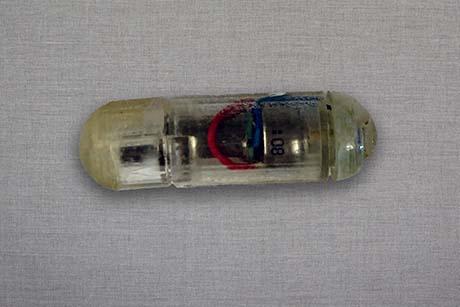Alumni Spotlight: Professor Woodie Flowers (SM ‘68, MEng ‘71, PhD ‘73)

Photo Credit: Tony Pulsone
For Professor Emeritus Woodie Flowers (SM ’68, MEng ’71, PhD ’73), engineering is all about having fun. But it wasn’t always that way.
As a high school student from a poor family, Flowers unexpectedly received a scholarship to college.
“I was planning to get a job in the oil field and buy a Corvette. But then I found out in the last part of my senior year that I could go to college. I was not prepared for that, so I knew I had to work hard. So I worked hard, and it turned out well. And for my whole professional career I’ve felt appropriately insecure about being surrounded by people who were more capable than me.
“But that is partially why I think about education in a particular way. I just didn’t know any better than to work really hard, and I was too stubborn to accept that the sub-optimal learning methods I saw couldn’t be fixed, and so I followed my own convictions about that.”
His convictions led him to become a major force in the transformation of mechanical engineering education. Having been advised by MechE professor Robert Mann, who had similar beliefs in a hands-on, modern pedagogy, Flowers breathed new life into the MIT way of teaching engineering by doing, a reinvigoration at the right place and the right time that ultimately had a butterfly effect on the popularity of STEM (science, technology, engineering, and math) around the world.

Photo credit: Tony Pulsone.
Flowers developed one of the first hands-on courses with 2.007, turning it into a project-based experience for undergraduate students that culminated in an end-of-semester robotics competition. It placed robots – each built by one single student using a universal kit of tools and components – head to head during an event that quickly became one of the most highly attended at the Institute. He also helped to evolve a spin-off robotics competition for high school students with Segway inventor Dean Kamen called The FIRST Robotics Competition. It is one of many competitions that imitated Flowers’ original idea.
His father, Abe, who Flowers describes as “a terrible businessman but a very interesting and creative guy,” was also a huge influence on Flowers’ vision for engineering education. He was a welder, repairman, and self-made inventor who taught Flowers not only how to be creative and productive with his hands but also that through the success of building something you didn’t think possible, you can transform yourself. “I learned from my father that doing things in a different way was often fruitful, and the underpinnings of all my educational efforts is to allow people a path to change their self-image. Students might have struggled with equations and other rigorous elements of an MIT education, but in 2.007 they could be superstars.”
The creativity that both MechE and Flowers are known for is proportionate to their dedication to hands-on education. The experience of devising creative solutions and thinking outside the box as you’re making and building shows students that good engineers need to be creative too. Knowledge is of course essential, Flowers says, because uninformed imagination can be quite dangerous, but at the same time, “nobody is getting hired to solve the multiple-choice problems at the end of the chapter.
“I think you have to just jump in and do it […],” he continues. “For example, I hated math all my life until I took Calculus in conjunction with some engineering courses. Then all of a sudden, I got it. It meant something to me because I had spent a lot of time bending metal with a hammer, so the math had context.
“If you experience an idea and then go back and learn the abstraction, the abstraction makes sense. But if you do the opposite, it doesn’t work so well because there’s no context yet.”
Watch a video of Flowers hosting his famous 2.70 robotics competition in 1981, or watch a comprehensive interview with Flowers from 2011.

